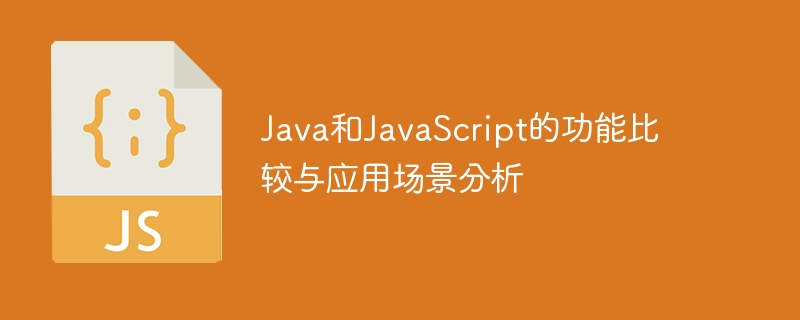

Function comparison and application scenario analysis of Java and JavaScript
Java and JavaScript are two popular programming languages. Although they are different in name They are very similar, but in fact there are big differences in functions, uses and application scenarios. This article will compare the functions of Java and JavaScript, and explore their application scenarios in different fields with specific code examples.
Java is a statically typed, object-oriented programming language originally developed by Sun Microsystems and launched in 1995 Officially released. The Java language is cross-platform, can run on different operating systems, and has excellent performance and security. Java is usually used to develop large-scale enterprise applications, mobile applications, desktop applications, etc.
Java code example:
public class HelloWorld {
public static void main(String[] args) {
System.out.println("Hello, World!");
}
}JavaScript is a dynamically typed, prototype-based programming language originally designed for manipulating the DOM on web pages. and achieve dynamic effects. With the advent of Node.js, JavaScript can also run on the server side and is widely used in web development. JavaScript is commonly used for front-end development, building interactive web pages and mobile applications.
JavaScript code example:
function greet() {
console.log("Hello, World!");
}
greet();In practical applications, Java and JavaScript have their own characteristics and advantages. Developers can choose the appropriate language based on project needs and specific circumstances. Java is suitable for large-scale enterprise applications and desktop application development, while JavaScript is suitable for front-end development and full-stack development. Through the comparison and analysis of this article, I hope readers can have a clearer understanding of the differences in functions and application scenarios between Java and JavaScript.
The above is the detailed content of Function comparison and application scenario analysis of Java and JavaScript. For more information, please follow other related articles on the PHP Chinese website!
